Ulf Lindroth brings us the story of two young Swedish brothers as they head out on a lake in a little boat, armed with .22, to hunt these small fur-bearing creatures
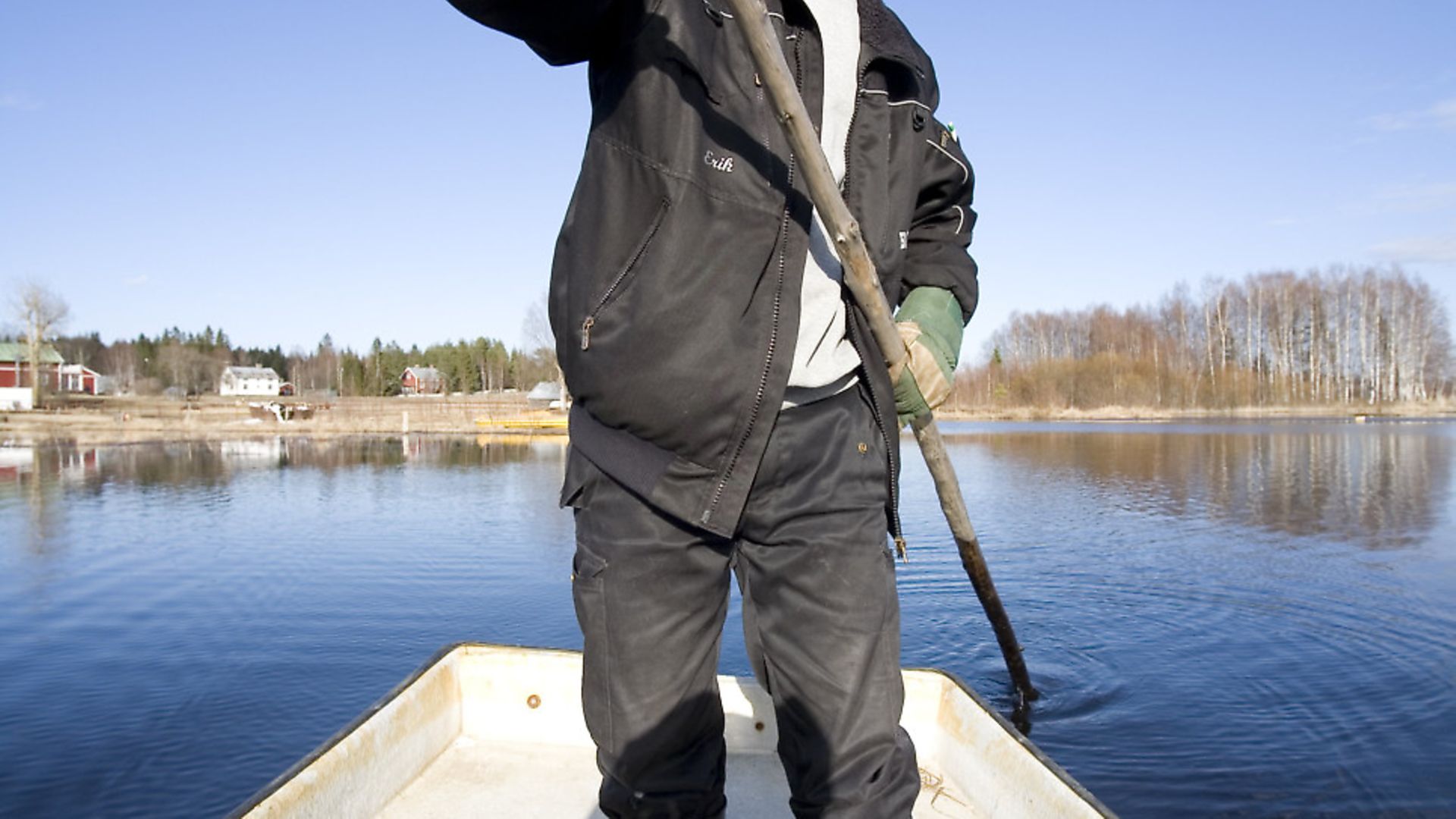 credit: Archant
credit: Archant
Rifle hunting comes in many forms: some reek of adrenaline, some are tranquil. If you ever end up in a small boat with a .22 on a northern lake, you may get a taste of the latter; at least, you will if it is a good year for muskrats.
In the 1950s the muskrat started a race south along the coast of northern Sweden. This North American species, which had been introduced to Finland for its fur, was colonizing new countries at a rate of about 10km per year. And it was doing well.
The muskrat must be the closest thing to an aquatic cousin the rabbit ever had. A zoologist may make objections, but it’s not only the size and the appetite that are comparable; the muskrat will match one of the rabbit’s most legendary traits – its capacity to breed. Needless to say, muskrat numbers grew fast. Where the furry pioneers found suitable habitat in the form of shallow lakes with plenty of vegetation, they thrived.
Swedish hunters soon found that ‘spot and stalk’ with a .22 was a perfect way to tackle the newcomers. A canoe or a boat provided a slightly different environment than the typical rabbit stalk, but evenings on muskrats could be just as intense. And since there are no rabbits in the north of Sweden, the muskrats were most welcome.
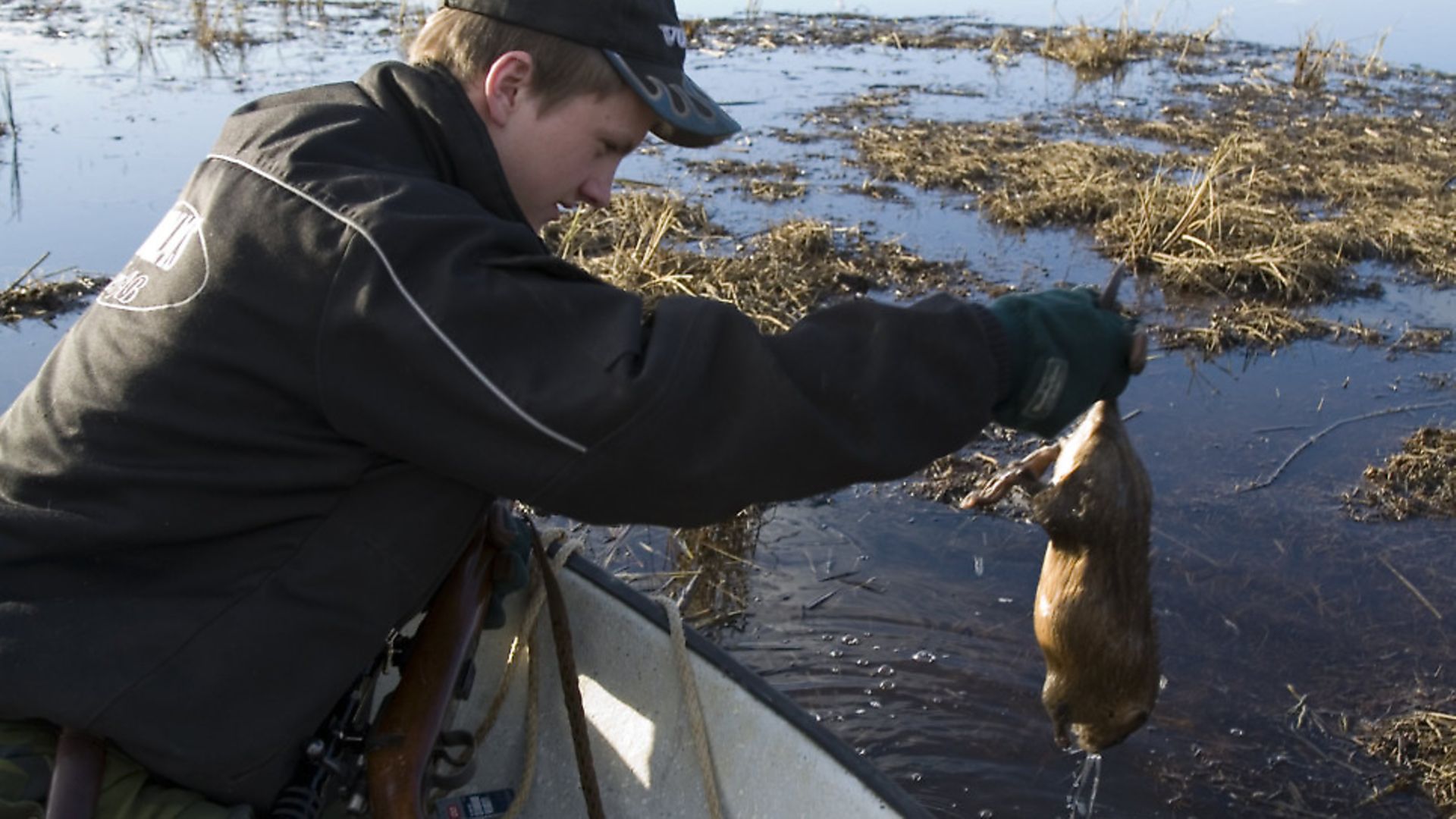 credit: Archant
credit: Archant
Hunting probably never put a dent in the booming population. Still, numbers eventually dropped and stabilised at a much lower level. No one but the muskrats know why, but perhaps there was not enough food available. Perhaps local predators adapted.
Anyway, some years still provide good muskrat numbers. On an early May evening in just such a year, I joined two young and enthusiastic hunters on Lake Persöfjärden close to the northern end of the Baltic Sea.
Erik Nordström studied at a secondary school with a hunting programme. Thanks to that, he had obtained his gun permits at the age of 17. His younger brother Jonas, 15, could legally hunt alongside a permit holder. Thus, the young team could arm themselves with a .22 LR and take to the sea, or at least to the large shallow lake spreading below their parent’s farm.
As the two brothers wrestled a small plastic boat across a stretch of mud to reach the water, part of the lake was still covered in ice, which signalled perfect conditions.
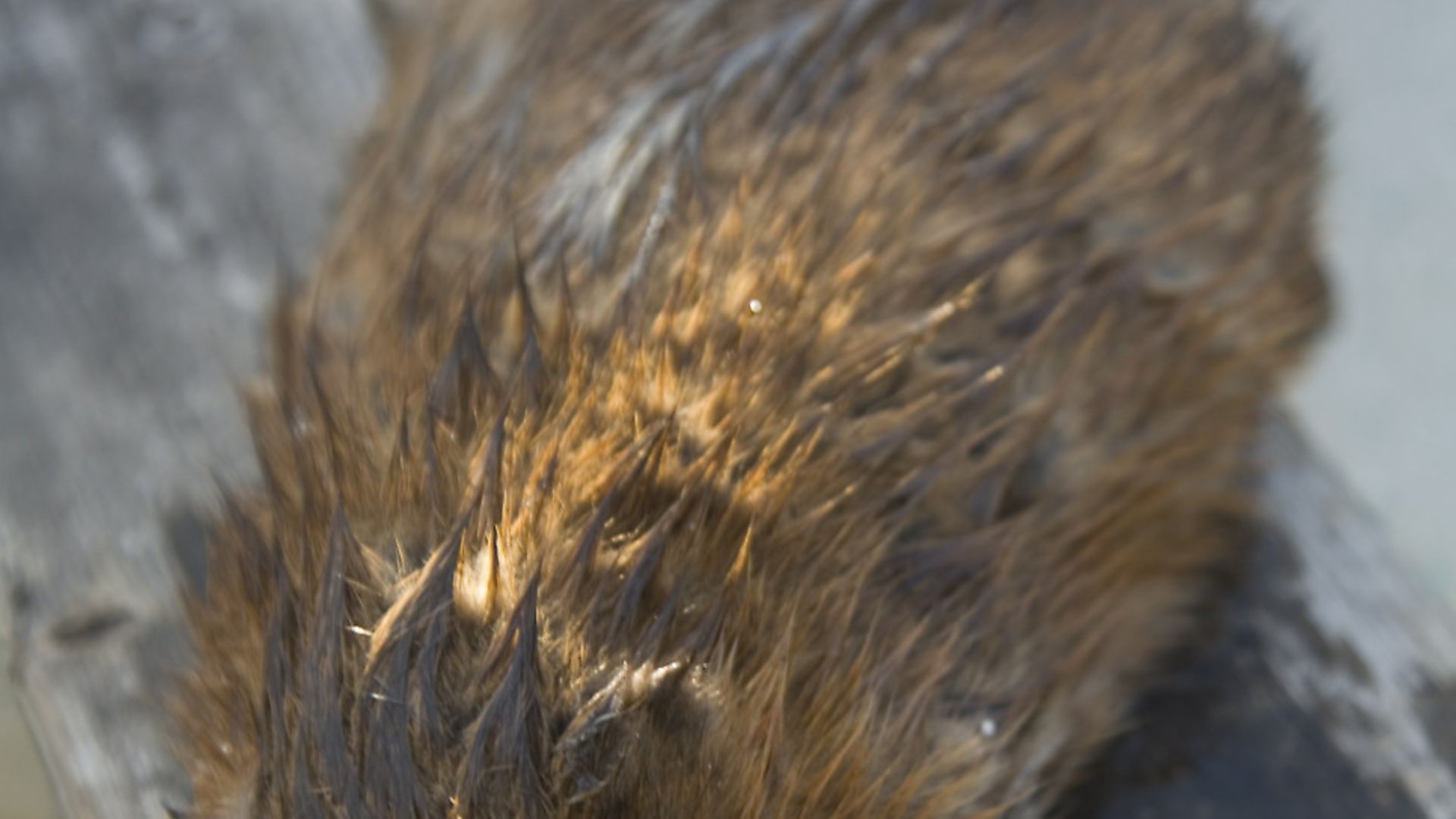 credit: Archant
credit: Archant
Free-floating lake ice will quickly flatten the huts where the muskrats have wintered. This proves a small problem as the weather turns warmer and nutritious green shoots emerge all over the lake bottom. Suddenly the wakes of swimming animals will be seen frequently. Hunters will have a couple of prime weeks before new reeds grow up and hide the muskrats for the summer.
As Erik started poling the boat westwards along the shore, action wasn’t long in the coming. “There!” Erik pointed towards the shore. A glittering wake gave the first muskrat away. It was only 50m away, swimming along the shore just outside a bank of mud. Then it was gone, just as quickly.
Erik held the boat still. If the muskrat had been frightened, it may well disappear. But it could just as soon have gone down for a mouthful of reeds.
Jonas was already poised in the bow with the .22. He didn’t have to wait very long. There was a small heave on the surface next to the mudbank. The next second, a small brown animal was sitting on the mud, handling a few green shoots.
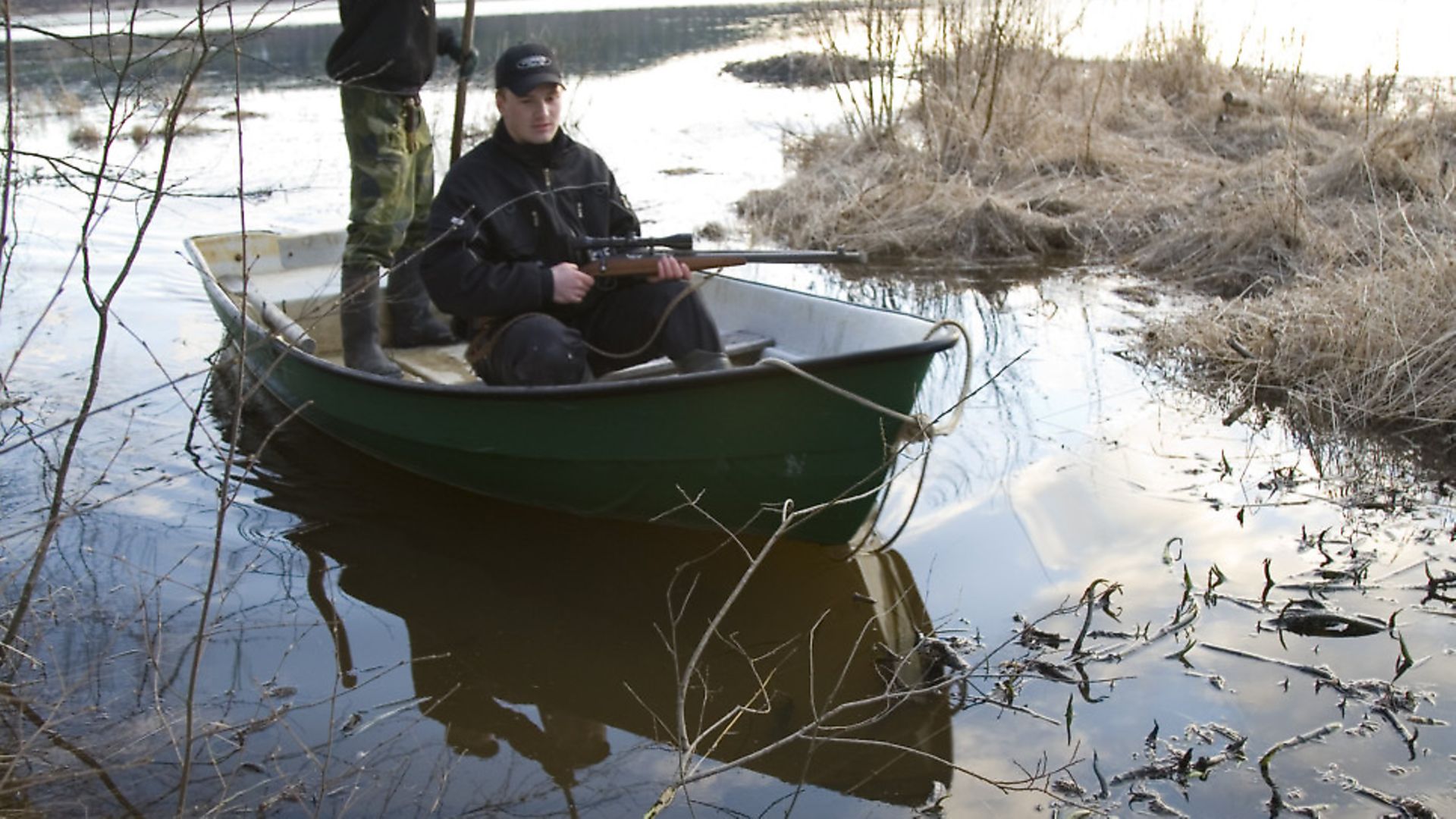 credit: Archant
credit: Archant
Shooting from a small boat is not easy. Jonas was reminded the hard way. As the bullet hit the mud, the muskrat made a leap which would have done credit to its short-tailed cousin.
A couple of mallards rose from a nearby ditch, but apart from them and the muskrat, no one seemed to have noticed the shot. Over the fields the curlews kept whistling. Further along the shore the goldeneyes kept courting.
Still, the muskrat got the message. It didn’t reappear, however carefully Jonas scanned the surface.
Then again, it didn’t have to. There were others to take its place. Erik and Jonas spotted several little round shapes in quick succession. Three or four animals were sitting on distant mudbanks or floating debris in the direction where the brothers quietly poled their boat.
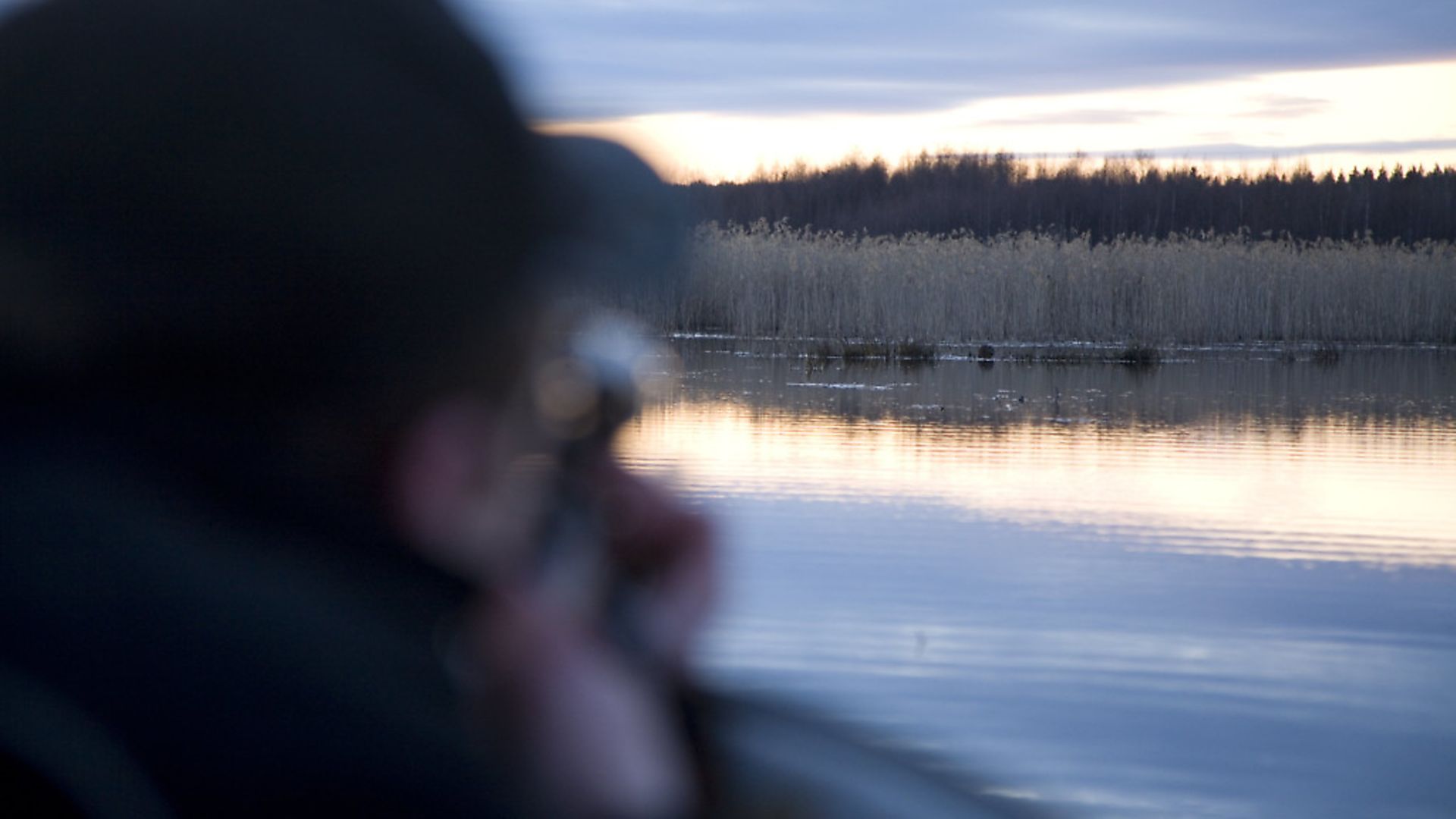 credit: Archant
credit: Archant
Two or three shy rodents slipped into the water as they spotted the approaching boat, diving and disappearing quietly. But eventually there was another confident animal which just kept eating as the boat closed in.
The bullet struck with a convincing ‘plop’ and the small furbearer tipped forward and lay floating next to the mudbank.
A smiling Jonas gave up the rifle and took the pole. His brother settled down into the shooter’s position in the front and waited quietly for his turn.
It turned out Erik was in for quite a wait. Probably a quarter of an hour passed with little more than a couple of distant wakes. Then, eventually, there was action again.
A distant muskrat was spotted swimming around a small island. It did not emerge on the other side. The tension built as Jonas poled the boat carefully towards the island. There was a muskrat somewhere on the shore of that little piece of land. There had to be. And the brothers felt certain they would see action within a very short time.
Noiselessly the small boat cut the surface close to the island. A quarter of the way round the island – nothing. Halfway round – nothing. No one spoke. After all, they had seen the muskrat swim here and they should have seen it had it left.
The tension was tangible. Every move careful, every breath controlled. Erik had his small rifle ready and watched the slowly shifting shoreline intently.
Only 10m separated them as the hunter spotted his prey. The prey did not look back. It was busy chewing... and then it was not.
A few moments later, Erik shook the water out of the fur and grinned. Not only had he just had a go at the eternal test of man against his prey, but he would also skin the muskrat and the fur would fetch around £2. Not much to a working man, but good money to a schoolboy. Especially considering how easily skinned a muskrat is.
About the same time as the animal was secured, a cold wind started blowing. It was not strong, but it did change the evening perceptibly. There was a new chill in the air, and for a while no further signs of muskrats were seen.
The brothers took to rowing and headed for the leeward side of the lake. There was less wind there, but the shadows were deeper and the air colder. The muskrats were just as invisible. But then, as the somewhat discouraged brothers started rowing back, the wind died down again.
In this evening calm, thrushes were suddenly heard clearly as they sang in the spruces along a distant shore. Ducks were flying, swans and cranes were trumpeting. Even if muskrats were in short supply, it was a good place to be. And then the muskrats apparently agreed and turned out again.
For a while Erik and Jonas took turns in spotting animals. One swam along the shore and then got up and started feeding. It soon lay at the bottom of the boat. Two others were swimming in a shallow where the brothers couldn’t reach them, but just as Erik was making a plan, Jonas spotted splashes further out. Two muskrats appeared to be fighting.
However aggressive, the fighters decided to make peace as the boat closed in. The wiser of the two submerged and was gone. The other one swam over to have a look at the boat.
Northern spring evenings seem to last forever, but they don’t really, and suddenly Erik and Jonas noticed that it was not only getting dark but also rather cold.
As Erik and Jonas started poling their way homewards, they still spotted the occasional wake on the dark, glassy surface. The odd round silhouette appeared on the mudbanks, and they got another muskrat or two as they went along.
Perhaps there’s no real moral to this story. But if there is, it probably goes something like this: if you ever end up handling a worn old .22 while poling for little brown rodents – which in all honesty look more like rats than rabbits – while slowly growing wetter and colder, you may just find to your surprise that there’s still no place you’d rather be.
It may certainly happen to a young man on a calm spring lake, when the ducks are courting, his brother does a good job of poling, and he makes that tricky shot. And it may happen to you on your next stroll among the rabbits. It does not take a great trophy to transform a few hours into an adventure.